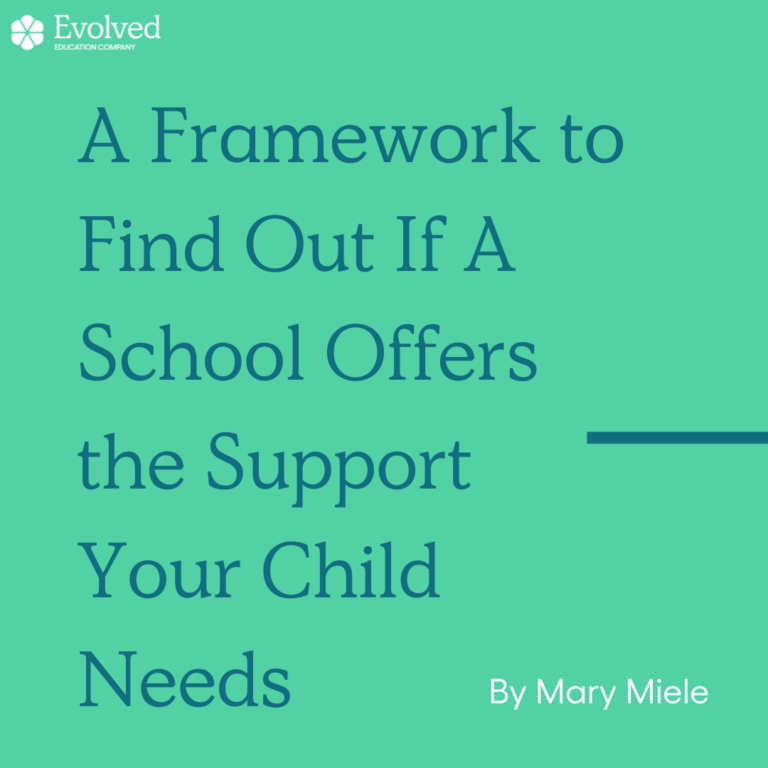
As a parent, you want the best for your child’s education, especially when they have unique needs such as ADHD, writing challenges, anxiety, reading and comprehension difficulties, giftedness, occupational therapy (OT) challenges, separation anxiety, or language-based learning disabilities. You may find yourself asking questions such as, “How does this school support my child?” or “What can this school do for my child’s specific needs?”
In response to these important questions, I have developed a framework to guide you in understanding and advocating for your child’s educational support. My name is Mary Miele, and I am an education consultant and special educator. I have been working with families for the past 26 years. This process allows families to get very specific with their planning and ultimately succeed in supporting their unique child as they explore any school and the support offered.
1. Defining “Support”
The first step in navigating school support is defining what you mean by “support.” It’s a term that can mean different things to different people. Consider these questions:
- Do you envision the school taking complete responsibility for addressing the issue?
- Are you looking for a partnership between the school and your support team at home?
- Do you expect specialists in the school to work with your child to improve their skills in specific areas?
- Is a standalone program on your child’s schedule necessary to address a weakness?
- Are you seeking a specific service, and if so, how often, where, and for what reason?
Clarifying your expectations will help you communicate effectively with educators and develop a plan that truly meets your child’s needs.
2. Public School vs. Private School Options
The next step depends on whether your child will attend a public or private school:
Public School:
If your child is looking at a public school, you can use the information you defined in Step 1 to craft your child’s Individualized Education Program (IEP). Once the IEP is developed and the committee signs off on it, the school is legally obligated to implement your outlined support. However, it’s essential to stay involved and monitor the execution of the IEP, ensuring that proper assessments and feedback are provided to track your child’s progress.
Private School:
For families considering private schools, the process is slightly different. You should aim to align the support plan you defined in Step 1 with the school’s program. Identify any gaps in support and decide if outside support services will be necessary.
3. Be Cautious of Potential Pitfalls
Pitfall 1: Relying on Vague Recommendations
Don’t choose a school solely based on vague recommendations like, “This school is great for kids with Executive Functioning Deficits.” Every child’s needs are unique, so thoroughly assess how the school can address your child’s specific challenges.
Pitfall 2: Negative Experiences of Others
Don’t dismiss it outright if someone had a negative experience in a school that appears suitable for your child’s needs. Instead, ask more questions and gather information about how the school plans to support your child. Remember that your child is more than just a label; what didn’t work for one child might work for you.
Pitfall 3: Stagnation of Support
Once you’ve established a support plan, remaining actively involved is crucial. Your child is continuously growing and developing, so their needs may change. Be vigilant, ask questions, and collaborate with trusted allies who share your commitment to your child’s education.
________________________
Consider seeking guidance if you ever feel overwhelmed or uncertain about your child’s educational journey. You can contact me at mary@evolveded.com for consultations to discuss learning plans for students of all ages. I’m here to assist parents in efficiently supporting their child’s unique educational journey.
Advocating for your child’s education and support is vital as a parent. By defining your expectations, carefully considering school options, and avoiding common pitfalls, you can ensure your child receives the personalized support they need to thrive in their educational journey.


